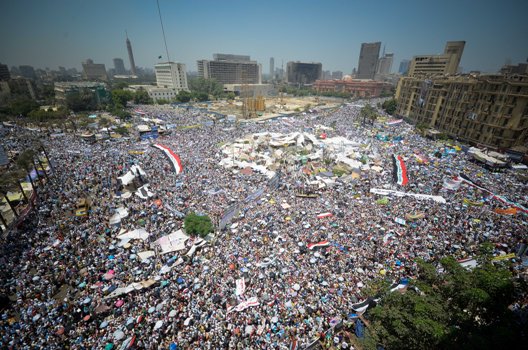 The Egyptian people are not ready. So said Omar Suleiman, when he wanted to strip the Egyptian people of their right to choose who governs them, when they wanted to end the state of humiliation and disgrace they lived in under ousted president Hosni Mubarak.
The Egyptian people are not ready. So said Omar Suleiman, when he wanted to strip the Egyptian people of their right to choose who governs them, when they wanted to end the state of humiliation and disgrace they lived in under ousted president Hosni Mubarak.
So said various heads of Egyptian universities, responding to the floods of revolutionary youth within the walls of the university as they rebelled against an arrogant faculty and the idols among them. Meanwhile, the faculty would repeat day and night, “You should be thankful that I’ve agreed to teach you,” forgetting that they are the main reason that Egyptian universities have fallen to the bottom of the World University Rankings.
So said the people to themselves, demanding the return of the infamous security apparatus, to destroy the gains of the revolution and erase it from the archive of Egyptian memory, using foreign conspiracies and the Muslim Brotherhood’s failures as a smokescreen.
Yet the question remains. Three years after the so-called Arab Spring, are we ready? Have Egyptians leapt to their feet for the sake of parliamentary representation or a political platform? Have the vast majority of Egyptians risen up for the sake of greater freedom of expression, or the freedom to engage in political action and join political parties and civil society organizations? Are these the 40 million illiterate and the 60 million poor, including those who live in average poverty or extreme poverty? Have the millions suffering from cancer been cured? Have the thousands who drowned, fleeing from Egypt toward the shores of Europe, been rescued?
Or did we want to achieve our own dreams and live in personal prosperity at the expense of an already burdened people, reduced to rubble at our feet? We sold their simple dreams of living in dignity. One side promised them heaven. Heaven is nothing more than a place to arrive if their daily dreams of dying are granted. Another side promised social justice, promising they would no longer have anything to fear when they entered police stations, that they would no longer be abused by their employers. They would no longer fear that a man who owns his own car would accidentally run into them, while they are riding a battered motorcycle, with their four sons on the back.
This is a call for accountability, and perhaps a call to bring us back on track, to see whether we have helped ordinary citizens achieve their dreams—or to see if we have even achieved our own dreams. How many hospitals have we built? How many of the dead have we avenged? How many organizations have we formed? And how many of the drowning have we saved? Our tongues are dripping with irony when we demand humanity for the toiling citizen. In the end, he is the one mocking us, waiting to avenge himself against us. How can he not? We are the ones who have broken our promises, and made promises we could not deliver.
We must consider this expensive bill, paid for with the blood and bodies of citizens who have been betrayed. They died time and again, only to be sold for things not in their interest. We strive to preserve the pure Egyptian souls that remain by again asking ourselves—are we ready?
Mohammad Tolba founded the Salafyo Costa Movement in April 2011. He writes a weekly column for Egyptian daily, al-Youm al-Saba’a, and his first book is to be published in the coming months, detailing his experiences in Sudan, and the challenges he has faced as an Egyptian Salafi citizen.
Image: Photo: Ahmed Abdel-Fatah
